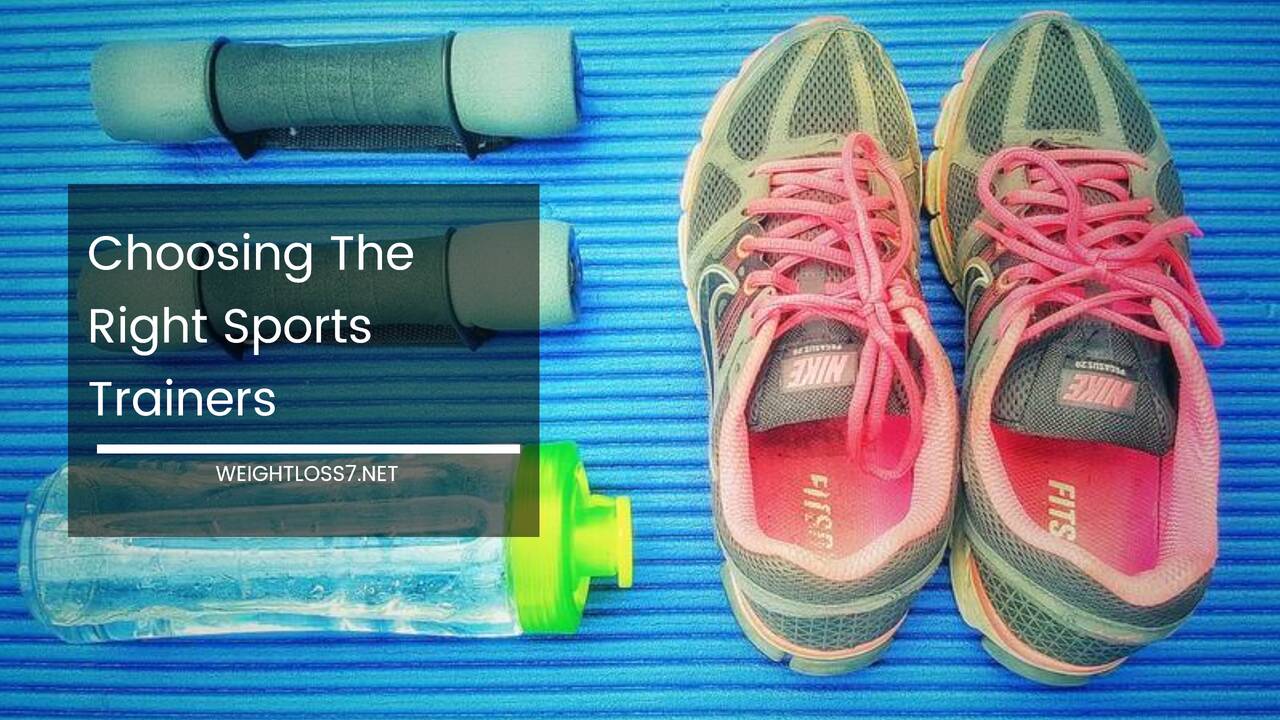Rapid Weight Loss Techniques: Achieving a Healthier You

Rapid Weight Loss Techniques
Excess weight not only affects an individual’s physical appearance but also has far-reaching consequences on various aspects of life, including overall quality of life, self-esteem, mental health, susceptibility to depression, potential health risks, and physical capabilities.
Rapid weight loss is a goal that many aspire to achieve, not just for aesthetics but also for the numerous health benefits associated with maintaining a healthy weight.
This comprehensive exploration will delve deeper into the intricacies of rapid weight loss techniques, emphasizing the importance of a holistic approach to achieve a healthier you.
The Significance of Weight Loss
Before delving into the specifics of rapid weight loss techniques, it’s crucial to understand why weight loss is significant.
Beyond the desire for a slim, attractive physique, the impact of weight on one’s health and well-being cannot be overstated.
- Quality of Life: Excess weight can significantly impair an individual’s quality of life. Simple daily activities may become challenging, leading to reduced mobility and independence. This can result in a diminished overall quality of life.
- Self-esteem and Mental Health: Struggles with weight can take a toll on self-esteem and mental health. The societal pressure to conform to certain beauty standards can lead to feelings of inadequacy and depression.
- Health Risks: Obesity and excess weight are associated with a host of health risks, including cardiovascular diseases, diabetes, hypertension, sleep apnea, and more. Achieving and maintaining a healthy weight can reduce these risks.
- Physical Incapabilities: Carrying excess weight places additional strain on the body’s joints and musculoskeletal system, potentially leading to physical limitations and chronic pain.
Given these implications, it’s evident why many individuals seek effective rapid weight loss techniques to improve their overall well-being.
A Holistic Approach to Rapid Weight Loss
While the desire for rapid results is understandable, it’s essential to approach weight loss holistically, considering the multifaceted nature of this endeavor.
Rapid weight loss is not merely about shedding pounds quickly; it’s about adopting a sustainable, healthy lifestyle.
Here are the key components of a holistic approach to rapid weight loss:
- Consulting a Healthcare Provider: Before embarking on any weight loss journey, it’s advisable to seek professional guidance. A healthcare provider can conduct a thorough physical examination and provide personalized recommendations based on your health status and goals.
- Mindset and Goal Setting: Achieving rapid weight loss begins with the right mindset and setting realistic goals. Maintaining a positive attitude and staying focused are crucial for success. Discipline and a strong mindset prevent discouragement and ensure you stay on track.
- Dietary Choices: A balanced and nutritious diet is the cornerstone of any successful weight loss plan. Rather than extreme diets or drastic restrictions, opt for a sustainable diet plan that can be integrated into your daily life. Emphasize whole foods, lean proteins, fruits, vegetables, and whole grains.
- Eating Habits: Pay attention to not just what you eat but also how you eat. Mindful eating, which involves savoring each bite and paying attention to hunger and fullness cues, can help prevent overeating.
- Exercise Regimen: Physical activity is a key component of rapid weight loss. Incorporate regular exercise into your routine, aiming for at least fifteen minutes a day. Activities like brisk walking, jogging, swimming, or dancing can be enjoyable ways to burn calories and improve fitness.
- Listening to Your Body: Every person’s body responds differently to various weight loss programs and plans. If you find that a particular approach isn’t yielding the desired results, don’t be afraid to make adjustments. Choose an exercise routine that aligns with your body’s capabilities and preferences.
- Fiber Intake: Increasing dietary fiber can help you feel full sooner and stay satiated longer, reducing overall calorie intake. Whole grains, fruits, and vegetables are excellent sources of dietary fiber. Additionally, fiber aids in regulating blood sugar levels, providing sustained energy, and managing fat storage.
- Avoiding Unhealthy Foods: Fried foods, especially those that are deep-fried, are laden with unhealthy fats. While alternatives like fish and chicken may seem leaner than beef, frying can add significant fat content. Opt for healthier cooking methods like grilling or baking.
- Hydration: Proper hydration is often overlooked but plays a critical role in weight loss. Drinking at least six to eight glasses of water daily helps keep the body refreshed. Adequate hydration supports the elimination of waste products from the body, facilitating weight loss.
- Consistency and Discipline: The key to rapid weight loss success lies in consistency and discipline. It’s not about extreme measures followed by a return to old habits, as this often leads to regaining lost weight. Instead, focus on long-term, sustainable changes in your lifestyle.
Understanding Rapid Weight Loss Techniques
Now that we’ve established the importance of a holistic approach to weight loss, let’s delve into specific rapid weight loss techniques that can be effective and sustainable:
- Mindful Eating: Mindful eating involves paying close attention to what and how you eat. It encourages savoring each bite, chewing food thoroughly, and being attuned to your body’s hunger and fullness cues. This approach promotes healthier eating habits and can prevent overindulgence.
- Intermittent Fasting: Intermittent fasting is an eating pattern that alternates between periods of fasting and eating. It can help control calorie intake and improve metabolic flexibility. Popular methods include the 16/8 method, where you fast for 16 hours and eat during an 8-hour window, and the 5:2 method, which involves eating normally for five days and significantly reducing calorie intake on two non-consecutive days.
- Low-Carb Diet: Low-carbohydrate diets, such as the ketogenic diet, emphasize the reduction of carbohydrate intake and the consumption of higher levels of fats and proteins. This approach can lead to rapid weight loss by inducing a state of ketosis, where the body burns fat for energy.
- High-Intensity Interval Training (HIIT): HIIT is a time-efficient exercise strategy that involves short bursts of high-intensity exercise followed by brief periods of rest or lower-intensity activity. It is known for its effectiveness in burning calories and improving cardiovascular fitness.
- Calorie Restriction: Reducing daily calorie intake can lead to weight loss. However, it’s essential to do this in a controlled and sustainable manner. Extreme calorie restriction can be detrimental to health and metabolism.
- Weight Loss Supplements: Some individuals may consider using weight loss supplements to aid in their efforts. However, it’s crucial to consult a healthcare provider before using any supplements, as their safety and efficacy can vary.
- Behavioral Changes: Addressing behavioral aspects related to eating and lifestyle is vital for long-term success. This may involve seeking support from a therapist or counselor to address emotional eating or developing strategies to cope with stress without resorting to food.
- Portion Control: Controlling portion sizes can be an effective way to manage calorie intake. Using smaller plates, measuring food, and being mindful of portion sizes when dining out can help prevent overeating.
- Regular Physical Activity: Incorporating regular physical activity into your daily routine is essential for achieving rapid weight loss. Aim for a mix of cardiovascular exercises, strength training, and flexibility exercises to maximize results.
- Hydration and Detoxification: Drinking plenty of water is not only crucial for overall health but can also aid in weight loss by promoting a feeling of fullness and supporting the body’s natural detoxification processes.
The Role of Fiber in Rapid Weight Loss
Dietary fiber is a key component of many successful rapid weight loss plans. It offers numerous benefits that contribute to weight management:
- Satiety: Fiber-rich foods tend to be filling and help you feel satisfied, reducing the urge to overeat or snack on unhealthy options.
- Digestive Health: Fiber aids in proper digestion and regular bowel movements, preventing bloating and discomfort.
- Blood Sugar Control: High-fiber foods can help regulate blood sugar levels, reducing cravings for sugary snacks.
- Reduced Calorie Absorption: Some types of fiber can bind to dietary fats and prevent their absorption, leading to lower calorie intake.
- Slow Digestion: Fiber slows down the rate of digestion, providing a steady release of energy and preventing spikes and crashes in blood sugar levels.
To incorporate more fiber into your diet, consider adding foods like whole grains, fruits, vegetables, legumes, and nuts to your meals.
Gradually increasing your fiber intake can help prevent digestive discomfort that may arise from a sudden dietary change.
The Pitfalls of Crash Diets
While the desire for rapid weight loss is understandable, it’s essential to be cautious of crash diets and extreme weight loss methods.
These approaches often promise quick results but can have detrimental effects on health and long-term weight management. Here are some pitfalls to avoid:
- Muscle Loss: Extreme calorie restriction can lead to muscle loss, which is not conducive to a healthy body composition.
- Nutrient Deficiencies: Crash diets may lack essential nutrients, leading to deficiencies that can harm your health.
- Metabolic Slowdown: Drastic calorie reduction can slow down your metabolism, making it harder to maintain weight loss in the long run.
- Loss of Lean Tissue: Rapid weight loss may involve the loss of lean tissue, which can be detrimental to overall health and fitness.
- Rebound Weight Gain: Crash diets often result in rebound weight gain once normal eating patterns are resumed, leading to a cycle of yo-yo dieting.
- Emotional Impact: Extreme diets can lead to feelings of deprivation and frustration, potentially triggering unhealthy relationships with food.
Sustainable, long-term success in weight loss is best achieved through gradual, balanced approaches that prioritize overall health and well-being.
The Importance of Physical Activity
Physical activity is a cornerstone of any rapid weight loss plan. It offers a multitude of benefits beyond burning calories, including:
- Increased Metabolism: Regular exercise boosts your metabolism, helping you burn more calories even at rest.
- Preservation of Lean Muscle: Engaging in strength training exercises helps preserve and build lean muscle mass, which is important for maintaining a healthy weight.
- Improved Cardiovascular Health: Cardiovascular exercises, such as running or swimming, enhance heart and lung health while aiding weight loss.
- Stress Reduction: Physical activity is an excellent stress reliever, reducing the likelihood of stress-induced overeating.
- Enhanced Mental Health: Exercise releases endorphins, which can improve mood and reduce symptoms of depression and anxiety often associated with weight struggles.
When designing an exercise regimen for rapid weight loss, consider a combination of cardiovascular workouts, strength training, and flexibility exercises. Tailor your routine to your fitness level and preferences to ensure long-term adherence.
Understanding Individual Variability
It’s important to recognize that every individual is unique, and what works for one person may not work for another.
Factors such as genetics, metabolism, lifestyle, and medical conditions can significantly influence the rate and effectiveness of weight loss.
- Metabolism: Some people have a naturally higher metabolism, allowing them to burn calories more quickly. Others may have a slower metabolism, making weight loss more challenging.
- Genetics: Genetic factors can play a role in an individual’s propensity to gain or lose weight. However, genetics should not be viewed as a determinant of success but as a factor to consider when setting expectations.
- Lifestyle: Lifestyle factors, such as stress levels, sleep quality, and daily activity, can impact weight loss. Managing stress, getting adequate sleep, and staying active are all essential for success.
- Medical Conditions: Certain medical conditions, such as thyroid disorders or hormonal imbalances, can affect weight. It’s important to address any underlying health issues with the guidance of a healthcare provider.
- Age: Metabolism tends to slow down with age, making weight management more challenging for older individuals. However, adopting a healthy lifestyle can still yield positive results.
- Support System: Having a support system, whether through friends, family, or a weight loss group, can greatly enhance motivation and accountability.
- Individual Preferences: Personal preferences play a significant role in adherence to a weight loss plan. Choose activities and foods that you enjoy to increase the likelihood of long-term success.
Setting Realistic Goals
Setting realistic goals is paramount to successful rapid weight loss. Unrealistic expectations can lead to disappointment and frustration, potentially derailing your progress. Here are some guidelines for goal setting:
- Specific: Define clear, specific goals. Rather than aiming to “lose weight,” set a goal to “lose 10 pounds in two months.”
- Measurable: Establish criteria for measuring progress. This could include tracking changes in body weight, body measurements, or fitness levels.
- Achievable: Ensure your goals are attainable and realistic. Consider factors like your starting point, rate of weight loss, and available resources.
- Relevant: Goals should be relevant to your overall well-being and long-term health. Avoid pursuing extreme or unsustainable objectives.
- Time-Bound: Set a timeframe for achieving your goals. This adds urgency and motivation to your weight loss journey.
- Adjustable: Be open to adjusting your goals as needed. If you encounter challenges or changes in circumstances, adapt your goals accordingly.
- Celebrate Progress: Celebrate your achievements along the way, whether they’re small milestones or significant accomplishments. Recognizing your progress can boost motivation.
The Importance of Support
Embarking on a rapid weight loss journey can be challenging, and having a support system can make a significant difference in your success. Consider seeking support from various sources:
- Healthcare Provider: Consult a healthcare provider or registered dietitian for personalized guidance and recommendations based on your health status and goals.
- Friends and Family: Share your goals with friends and family who can offer encouragement, accountability, and understanding.
- Weight Loss Groups: Joining a weight loss group or community can provide a sense of belonging and access to valuable resources and advice.
- Online Communities: Online forums and social media groups dedicated to weight loss can offer support, motivation, and the opportunity to connect with individuals on similar journeys.
- Professional Support: In some cases, seeking the guidance of a therapist or counselor can address emotional factors that may contribute to overeating or weight gain.
Sustainable Weight Maintenance
Achieving rapid weight loss is a significant accomplishment, but the journey doesn’t end there. Sustainable weight maintenance is equally important and often more challenging than the initial weight loss.
Here are strategies to help you maintain your weight in the long term:
- Gradual Transition: As you near your goal weight, gradually transition to a maintenance diet that allows for a slightly higher calorie intake. This prevents the shock of suddenly returning to regular eating habits.
- Monitoring and Tracking: Continue to monitor your food intake, exercise, and weight. Periodic check-ins can help you identify and address any changes or challenges.
- Regular Physical Activity: Maintain an active lifestyle by incorporating regular exercise into your routine. This helps prevent weight regain and offers ongoing health benefits.
- Mindful Eating: Continue practicing mindful eating to stay attuned to your body’s hunger and fullness cues. Avoid reverting to emotional or mindless eating habits.
- Flexibility: Be flexible with your diet and exercise regimen. Life is filled with changes and challenges, so adaptability is key to maintaining your weight loss.
- Social Support: Stay connected with your support system, whether it’s friends, family, or a weight loss group. Sharing your experiences and challenges can provide valuable insights and motivation.
- Lifelong Learning: Continue to educate yourself about nutrition, exercise, and healthy living. The more you understand, the better equipped you’ll be to make informed choices.
- Celebrating Success: Celebrate your success in maintaining your weight. Acknowledge the hard work and commitment it takes to sustain a healthier lifestyle.
Final Thoughts
Rapid weight loss is a journey that goes beyond shedding pounds; it’s about achieving a healthier, more fulfilling life.
While the desire for quick results is natural, it’s essential to approach weight loss holistically, considering the multifaceted nature of this endeavor.
Embrace a balanced diet, regular physical activity, and a positive mindset to maximize your chances of success.
Remember that every individual is unique, and what works for one person may not work for another. Focus on setting realistic goals, seeking support, and staying committed to your long-term well-being.
Rapid weight loss is a significant achievement, but the ultimate goal is to maintain a healthy weight and enjoy the countless benefits of a healthier lifestyle.
In your pursuit of rapid weight loss, consult with a healthcare provider or registered dietitian for personalized guidance and recommendations.
With the right approach and a commitment to your health, you can achieve your weight loss goals and embark on a journey toward a healthier, happier you.

















